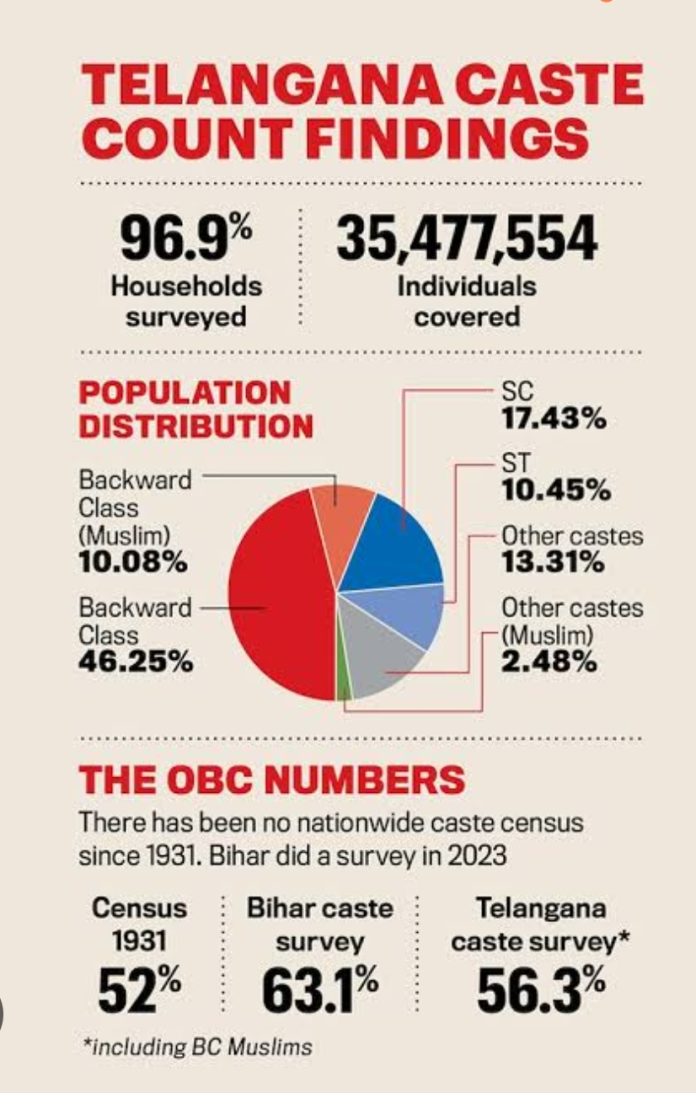The recent socio-economic and caste survey conducted in Telangana has shed light on the entrenched caste structures among Indian Muslims. According to the survey, while the total Other Backward Classes (OBC) population in Telangana is 56.33%, Muslim OBCs make up 10.08%, reaffirming that caste is not exclusive to Hinduism but is an ingrained part of India’s social structure across all religions, reported the Wire.
Historically, caste-based identities have persisted within Islam and Christianity despite religious conversions. The Telangana caste survey categorizes converted Christian Dalits separately under the BC-C group, emphasizing that conversion alone has not eradicated caste-based discrimination. This survey, distinct from Bihar’s caste enumeration model, provides a structured categorization of caste groups and serves as a crucial data point for understanding social hierarchies among Muslims.
The findings reveal that among Telangana’s 12.56% Muslim population, nearly 80% have Shudra or artisan caste origins, continuing to face economic and cultural discrimination. While political parties like AIMIM have had a strong presence in Hyderabad, they have not taken significant steps toward abolishing caste-based inequalities among Telangana’s Muslims.
On the political front, the BJP has actively opposed the 4% reservation for Muslim OBCs in Telangana, while remaining silent on similar policies in Andhra Pradesh, where its allies, the Telugu Desam Party (TDP) and Janasena, support the same provision. Prime Minister Narendra Modi and Union Home Minister Amit Shah have also used the issue of Muslim reservations to appeal to Hindu OBC voters.
Despite the clear presence of caste among Muslims, the topic remains largely underexplored in Muslim intellectual discourse. The Telangana caste survey offers a critical opportunity to examine and address caste-based inequalities within Indian Islam. As debates on national caste censuses continue, Telangana’s model provides a framework for future policy discussions.




